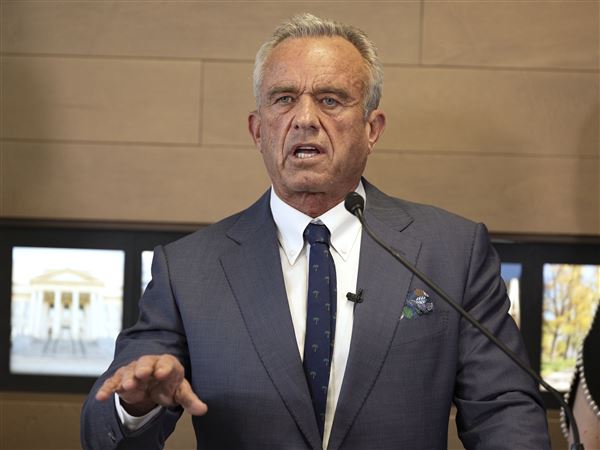MOSCOW -- For a number of years ending in April, two Pentagon middleman companies misled the Russian authorities into thinking that the large quantities of jet fuel they were purchasing were for civilian use, not military, apparently with the intention of evading a tariff, a Congressional report scheduled for release on Tuesday concludes.
But the fuel was being bought by the Pentagon for shipment to the American airbase in Manas, Kyrgyzstan, and from there on to Afghanistan, the report said. Once Russian officials discovered the true identity of the recipient, they cut off supplies, creating a major logistical headache for United States military commanders.
Officials for the contractors expressed little remorse for their actions, the report shows.
"We got one over on 'em," the report quotes one company official, Charles Squires, as telling investigators. "I'm an old cold warrior, I'm proud of it, we beat the Russians, and we did it for four or five years."
Until, that is, the Russians objected and the system unraveled.
That breakdown forced a major redrawing of supply routes into Afghanistan for jet fuel, which is in chronically short supply in landlocked Afghanistan. It also touched off a major behind-the-scenes diplomatic effort by the Obama administration to rebuild the fuel lines.
The Pentagon contractors bought jet fuel from a subsidiary of the Russian energy giant Gazprom and furnished the Russian authorities with falsified export documents indicating that it would be used only for civil aviation, said the report by the Subcommittee on National Security and Foreign Affairs, which is led by Representative John F. Tierney, Democrat of Massachusetts.
The supply system -- operated by Red Star and the Mina Corporation, two closely affiliated companies registered in Gibraltar and managed by former United States military officers -- accounted for more than half of the jet fuel used in the war, the report said. Mr. Squires, a former defense attaché at the United States Embassy in Kyrgyzstan, suggested to Congressional investigators that the Russian authorities knew all along about the falsified certificates. But they did not act, he said, because Gazprom was making profits on the sales.
In any case, the Russian Federal Security Service and the Russian Parliament investigated in 2009, the report said, and the trainloads of jet fuel from Gazprom started to dry up, halting altogether on April 1.
In a deposition with Congressional investigators, Red Star and Mina Corporation officials characterized the false certificates as necessary to circumvent Russian export restrictions on jet fuel sales to foreign militaries. In interviews, Kyrgyz officials characterized them as an effort to avoid export tariffs.
While those assertions remain in dispute, there is no question that the supply disruption caused major problems. Contractors were compelled to buy far more costly fuel that had to be shipped through the Black Sea and sent overland to Kyrgyzstan and Afghanistan. It also forced the military to rely more heavily on supply routes from Pakistan into Afghanistan on vulnerable mountain roads where trucks came under repeated attack this summer.
Since the cutoff, American diplomats have scrambled to cut new fuel deals with Kyrgyzstan and Russia. Their efforts seemed to be bearing fruit this month, when Secretary of State Hillary Rodham Clinton visited Bishkek and announced a contract with a state-owned company to provide half the fuel for Manas.
However, Kyrgyz officials, apparently backed by Gazprom, have said they want nothing to do with Red Star and Mina anymore, but Mina won a new, $315 million contract from the Pentagon on Nov. 4 to supply the Manas base. Just last week, the Kyrgyz police raided Mina offices in Bishkek, indicating continued deterioration in that company's position, as Kyrgyz officials support their state-owned alternative.
A Gazprom spokeswoman said only that the company now sells no fuel to the United States military in either Kyrgyzstan or Afghanistan.
A lawyer representing Red Star, who spoke on the condition of anonymity in an interview before the report's release, denied that the company had violated any laws in the countries where it operated.
First Published: December 21, 2010, 4:45 a.m.















